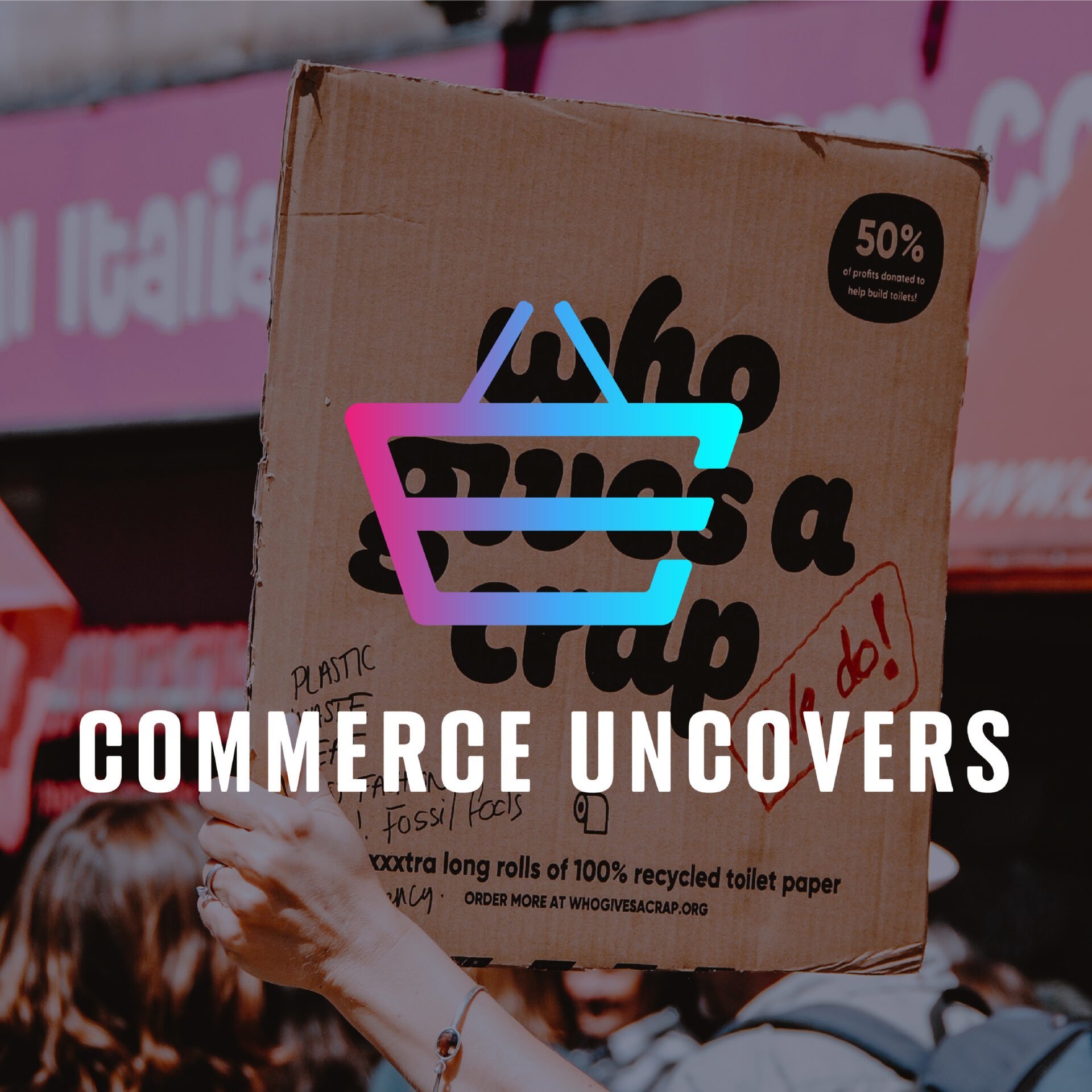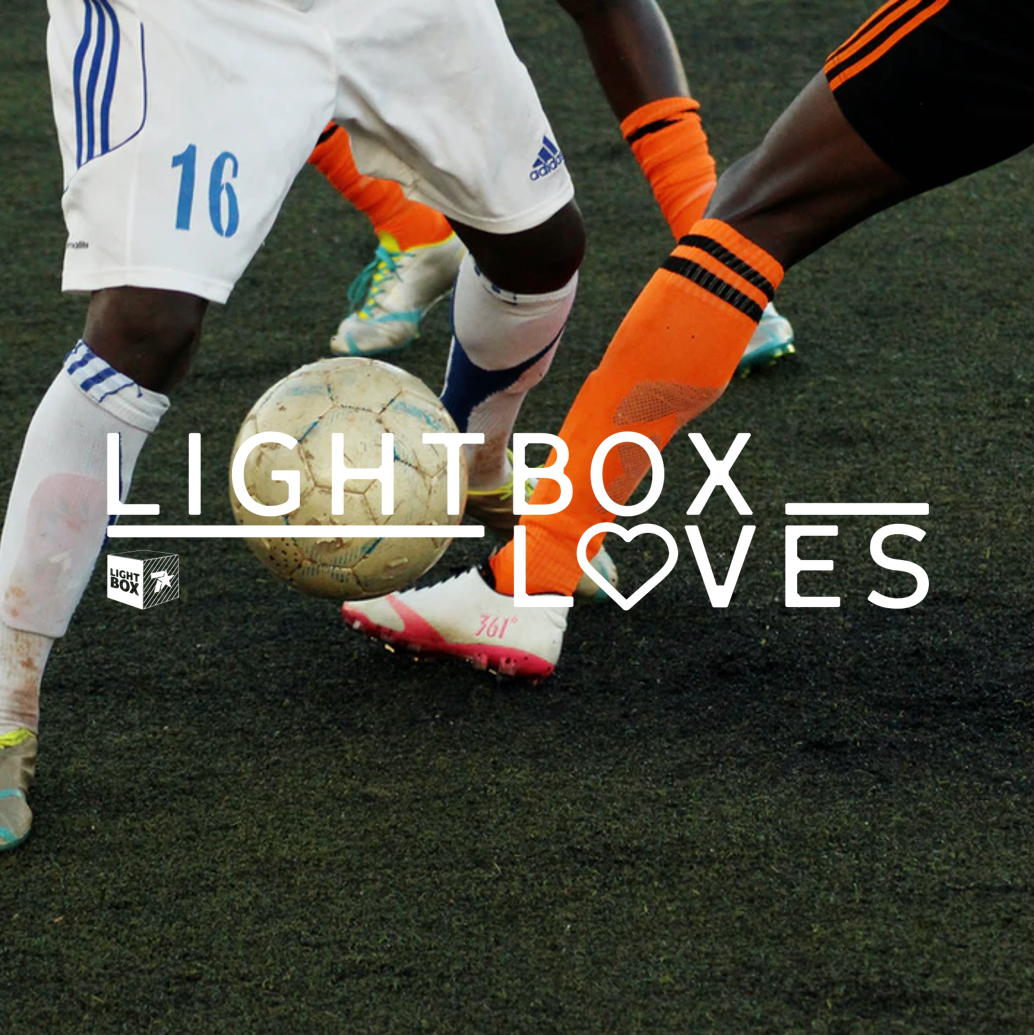
It’s been impossible to miss the unprecedented rise of ecommerce in 2020 as global lockdowns sent people shopping online. It was the strongest growth for more than a decade. As a result, these increased online sales has meant more packaging and waste during a time when practices which exploit the planet need a critical overhaul.
As a population however, a noticeable increase in people looking for climate friendly brands and solutions is seen, with 73% of UK consumers wanting to be more sustainable in 2021. With social causes and environmental impacts becoming more apparent and impactful, consumers are re-thinking where they buy and willing to spend with companies that align with their green values. For some, the cheaper cost is no longer the most important factor.
Today’s shoppers are looking for brands that get it right and “walk the talk”, and nearly half are willing to pay a premium for brands that support recycling, sustainability and are environmentally responsible.
Companies now need to look at how to align their values with sustainability. After receiving customers complaints, clothing brand Patagonia committed to replacing their plastic packaging with sustainable options, and documented their investigation and change process online.
Elsewhere, global brands like L’Occitane are working towards a goal of using 100% recycled plastic in their bottles by 2025, whilst smaller independents like Serious Tissues are changing the world from the bathroom by selling UK made 100% recycled toilet rolls with no plastic packaging.
Sustainability in ecommerce is moving from its status of being niche to essential. As consumers become more environmentally aware and take their money to ethical companies that are making the necessary positive changes, it’s time for more brands to make the better choice and show their sustainable credentials.
To understand how brands can play a role in turning consumers’ climate change goals into reality, download and read our whitepaper Sustainable Now.
Sources
Allure – https://www.allure.com/story/garnier-one-green-step-report-2021
IBM – https://www.ibm.com/downloads/cas/EXK4XKX8
Internet Retailing – https://internetretailing.net/industry/industry/ecommerce-grew-by-46-in-2020—its-strongest-growth-for-more-than-a-decade–but-overall-retail-sales-fell-by-a-record-19-ons-22603
Serious Tissues – https://serioustissues.com/

Just as the Premier League, English Football League and Women’s Super League announce their four-day boycott of social media from the end of April, we have seen a demonstration of how powerfully social media influences the modern game. Over the past week, coverage of the European Super League, and its demise at the behest of outraged fans, dominated the news. The role of social media was crucial in this, providing fans with a platform that amplified their voices to clubs, officials, politicians and even non-footballing audiences to gain support for their cause. Ultimately their outcry led to the demise of the ESL in a matter of days. How did social media help fans take down the league? And what can brands learn from this?
The explosion of discussion on Twitter after the Sunday night announcement of the league was immense and immediate. There were 1m mentions of the Super League in the seven days from its announcement, peaking last Wednesday when a third of mentions occurred in response to the English teams announcing their withdrawals from the league. Perhaps surprisingly, sadness rather than anger was the most common emotion among tweets, with 37% of posts expressing this feeling and showing the sense of hurt and betrayal that fans felt. The cry-laughing and rolling-on-the-floor laughing emojis were the most used emojis across the seven-day fall-out from the announcement (tweeted 16,309 and 7,171 times respectively), as fans criticised and made light of obvious flaws in the ESL’s plans. Their humour helped to embarrass the ESL organisers and bring the issue to a wider audience, especially as memes proliferated across social platforms. Despite the entertainment factor involved, there were also serious conversations occurring about the nature of professional football today. Among the most used words in tweets were “community” (10,350), “listening” (5,624) and “greed” (6,881) as fans felt that the ESL undermined the fundamental values of sportsmanship and the traditions of grassroots football.
The ESL failed for a number of reasons, but the lesson for brands from this episode is that brands must understand culture and where they fit within it. It’s hardly surprising that the ESL jarred fans, given the long-standing traditions of the game but also due to more recent cultural shifts that we have seen higher importance on community values across society. Heineken’s reactive ad got this right, combining the right tone of voice and a meme-like sense of humour. Culture is something that brands need to continually consider as part of their communications, especially as it develops so rapidly in the digital world.
Sources: BrandWatch data.
After more than a year of social and travel restrictions, economic uncertainty, and business closures, today is a day worth celebrating. For the first time this year, we can get our hair cut, shop to our hearts’ content and enjoy a well-deserved pint in our favourite local. With two thirds of Brits agreeing that the past year has been worse than a typical year, you’d think we’d be welcoming our new found freedoms with open arms, and never looking back…
To some extent, this is already proving to be true – even with freezing temperatures this morning, the re-opening of the high street was greeted with queues of Brits ready to experience a dose of normality. However, despite there being a huge appetite to enjoy many of life’s pleasures once more, over half of Brits (54%) claim that they are going to miss some elements of lockdown.
So much so, 1 in 5 of us admit that lockdown was better than expected, with this number doubling among 16 to 35 year olds. For 20% of Brits, personal finances have improved as a result of the pandemic, 1 in 3 now feel closer to their immediate families and 1 in 5 feel a stronger sense of community, claiming that they now have a better relationship with their neighbours.
It seems that we might already be starting to look back at the first lockdown with rose tinted glasses. A viral TikTok video which romanticises some of the cultural highlights of the March 2020 lockdown – such as Tiger King, #clapforcarers, DIY hair cut disasters and baking banana bread, describes last year as the ‘good ol’ days’ and ‘#bettertimes’, which has generated over 1 million likes and 35k comments – many of which positively reminisce about when lockdown was novel, recalling the period as ‘fun’ and ‘a vibe.’
As humans, we are very good at looking back with a glass half full attitude, focussing on the fond memories gained during lockdown, whilst allowing the more traumatic recollections to fade away.
Whilst it’s still too early to tell whether some of the fondness held towards lockdown will become part of culture, or if it will be all-forgotten as ‘normality’ resumes, brands who can help us navigate ourselves out of lockdown, by showing empathy towards our experiences over the past year, and continue to focus on some of the positives gained during this time are likely to engage consumers in both the short and long term.
Sources:
https://www.standard.co.uk/news/uk/uk-coronavirus-restrictions-lockdown-rules-study-b925875.html
https://www.kcl.ac.uk/policy-institute/assets/a-year-of-life-under-lockdown.pdf

The7stars’ latest white paper, The Experience Economy Rebound, details the road to recovery for the travel, hospitality and leisure sectors; industries which were placed on life support in 2020 as restaurants closed their doors and events were cancelled, rescheduled, and cancelled again. The past year has told a tale of two halves when it comes to financial stability. While millions were placed on furlough and faced uncertain job prospects, others built up savings. According to ONS data, between April and June 2020, households saved an average of 29.1% of their income – smashing the record set three decades ago.
However, personal finances are not the only factor likely to impact the rebound of the experience economy. Even as the vaccine rollout progresses, many remain reluctant to indulge in experiences until they are assured of their safety. Following the government’s announcement of the roadmap for de-escalating lockdown, Lightbox Pulse research found the emergence of three distinct groups, each of which will be crucial to an economic rebound in 2021.
The most lucrative of these groups is the Experience Enthusiasts, comprising 28% of the population. This group is desperate for a big summer and is willing to splash savings to achieve that. Experience Enthusiasts worry less about coronavirus and are comfortable with visiting virtually every location as soon as they reopen, including airports; making it a matter of when, not if, they book their next holiday. With this group so willing to engage in experiences, the time for brands to convert their enthusiasm into sales is now.
Around half (49%) of Brits are Pragmatic Participators. While they are cautiously optimistic of a return to normality, members remain to be convinced. Their summer will initially revolve around domestic trips – though they could be swayed if vaccine passports become the norm. Negotiating with this group will undoubtedly prove challenging for brands; however, they are there for the taking. By boosting confidence through cancellation guarantees and flexible rebooking, this group’s long-term potential can be unlocked.
The Social Sceptics will be the toughest for brands to convert. Social Sceptics are unconvinced of the safety of travel and are nervous about booking until they are assured their plans will go ahead. This group is keeping it local in 2021 through smaller, family-oriented experiences. This does not mean, however, that brands should simply ignore them: rather, through targeted messaging in trusted sources, they will be persuaded to eventually return to the experience economy. And with many in this group potentially saving up disposable income two years running, the onus is on brands to be at the forefront of their future plans.
Come the end of 2021, the ‘winners’ of the experience economy will be those brands that not only recognise the varying financial challenges facing the nation, but also react to the nuances in how each of these groups is willing to participate in travel and experiences.

The doors of non-essential retail opened again on the 12th April and, with them, crowds of UK consumers queuing up to get back into their favourite stores; an insight into consumer sentiment towards spending money again. With optimism and confidence returning due to the vaccine roll out, consumers are ready to start spending more, the switch in sentiment being immediate, like ‘a light being flicked (on)’.
After being bottled in for over a year, the new taste of freedom that comes with restrictions being lifted could see a spending surge in Q2; a euphoric post-lockdown impact on purchase intentions. Unlike previous recessions, many Brits strengthened their finances and managed to save during lockdown; amassing over £245bn, demonstrating a noteworthy potential for spending power and a likely significant bounce back in the UK post lockdown. A survey from Future illustrated that 45% of respondents had already started to plan their ‘splurge’ purchases, anticipating more than half will be spent as we enter fewer restrictions over April – June.
Britain’s ‘coiled spring’ economy was supported by Radiocentre’s research ‘bounce back and beyond’ where listeners were asked about their spend intentions once restrictions started to lift. Respondents illustrated their strong intent to increase spending across a variety of categories, most significantly against the entertainment and beauty industries. The inverse is also true with decreased spend anticipated against takeaways and online shopping, opting for real life moments and experiences instead. This trend is emerging within fast fashion with searches for online brands starting to soften since non-essential retail returned (Google Trends, 2021).
It’s interesting to note that consumers’ spending habits will likely shift compared with their pre-pandemic behaviours. A study from Bauer showed that consumers want their newfound ‘financial fire power to be a part of positive change’, particularly across sustainability and supporting local. We witnessed a huge increase in local shopping during the pandemic, and despite the return of the city highstreets, experts anticipate the focus on local to continue.
The next couple of months will be imperative for Britain’s returning economy, whilst some are cautious in the immediacy of the bounce back, if the overflowing stores and queues are anything to go by, we can expect a frivolous Q2 and beyond.

In the most rollercoaster period in recent football history, this month saw 12 “founder clubs” launch a European Super League only for it to collapse a mere 56 hours later. It showcased the power that fans still have over the sport they love, but also brings the question of ‘what would have happened’ to broadcasters and advertisers alike, who rely on the Champions League and Premier League for the vast majority of their reach.
Led by the owners of Real Madrid, Manchester United, Juventus, and Liverpool, the 12 founder clubs attempted to break away from the existing UEFA Champions League into a new ‘European Super League’, guaranteeing them a spot year-after-year, and an opportunity to own the commercialisation of the tournament. Fan backlash, 79% of whom opposed, alongside condemnation from Sky Sports, BT Sport, Amazon, and even Boris Johnson, ultimately led to its downfall – but this process showed us the potential fragility of the existing product of football that so many advertisers rely upon.
Criticism from the lead broadcasters, Sky and BT, was partly born from a concern over their investment in the existing football pyramid. BT Sport secured the TV rights to the Champions League until 2024 in a £1.2bn tender. However, if 12 of the biggest and most marketable clubs in that tournament were to leave then that could have a major impact on where advertisers decide to place their TV budgets. Similarly, with Sky Sports, if the six English teams were expelled from the Premier League, where would that leave the value of the product they’d invested so much in? Industries such as Gambling who invest significant budgets to be front and centre in the big matches on these channels could have shifted large amounts of money easily into the commercialisation of the European Super League if it did indeed reach the global scale of viewership that the founding owners expected.
Advertisers are most likely breathing a sigh of relief this week too. The decision on whether to jump on board with the potential scale of the European Super League is one that some would simply have to do, but that would have come at even more of a premium. Plus, the toxicity of fans, particularly in the UK, would open up a real discussion over the value of global association with the tournament vs the risk of alienating existing customers within this country.
The uprising against the European Super League united fans, clubs, brands, and broadcasters in a way that hasn’t happened before. It remains to be seen whether the ESL comes back under a new guise in a few years’ time and whether the pull of a global platform of elite football clubs proves too tempting for brands and broadcasters alike. However, and most importantly, this month fans proved that whilst their support elevated football to the commercial powerhouse that it is, if you try and take the fundamental nature of competition out the game that they love, then they will stop you.

The United Nations describes climate change as the ‘defining issue of our time’, with an impact that is global in scope and unprecedented in scale. People in the UK now consider its importance to be second only to the pandemic. Yet, action has failed to keep pace with increased awareness. the7stars joined forces with Global to identify three key areas where brands can help bridge the intention-to-action gap.
Creating urgency. Sustainability is too broad an issue; we must break it down to make it accessible and relevant to consumers. Communication, channels, and content each contribute differently to engaging consumers with more digestible material.
Brands need to understand the exact commitments to sustainability within their own business in order to identify a clear role to play in creating urgency. Whilst brands must consider the consumer experience of their conversation, viewing it through the lens of sustainability.
Bringing it home. Climate change tends to slip down the national agenda in the event of other global crises. However, Covid has had the opposite effect and put climate change in front of people’s minds by highlighting the impact consumers are having on the world around us.
Thus, brands need to maintain this momentum, such as visible commitments across packaging, owned touchpoints and activities within paid advertising. Brands must also think through the lens of the consumer. Nearly half the day is driven by habit, so focus on micro-moments of routine to unlock new opportunities to shift behavioural change. Finally, with people giving more time and attention to their local area, they must harness the power of local for brand interaction in emotive community spaces.
Making it easy. Research suggested that the onus for environmental issues previously fell upon major groups like the government, however, 80% now agree that sustainability is everyone’s responsibility. Yet, for many consumers barriers still exist – the top three being lack of resources, education and not knowing how to start.
There’s an appetite to make change, but the scale of the challenge, the abundance of information and the multiplicity of choice have bewildered people into inertia. With sustainability an unexpected by-product of lockdown, it’s up to brands to simplify the challenge and reframe their message for good.





Recent Comments